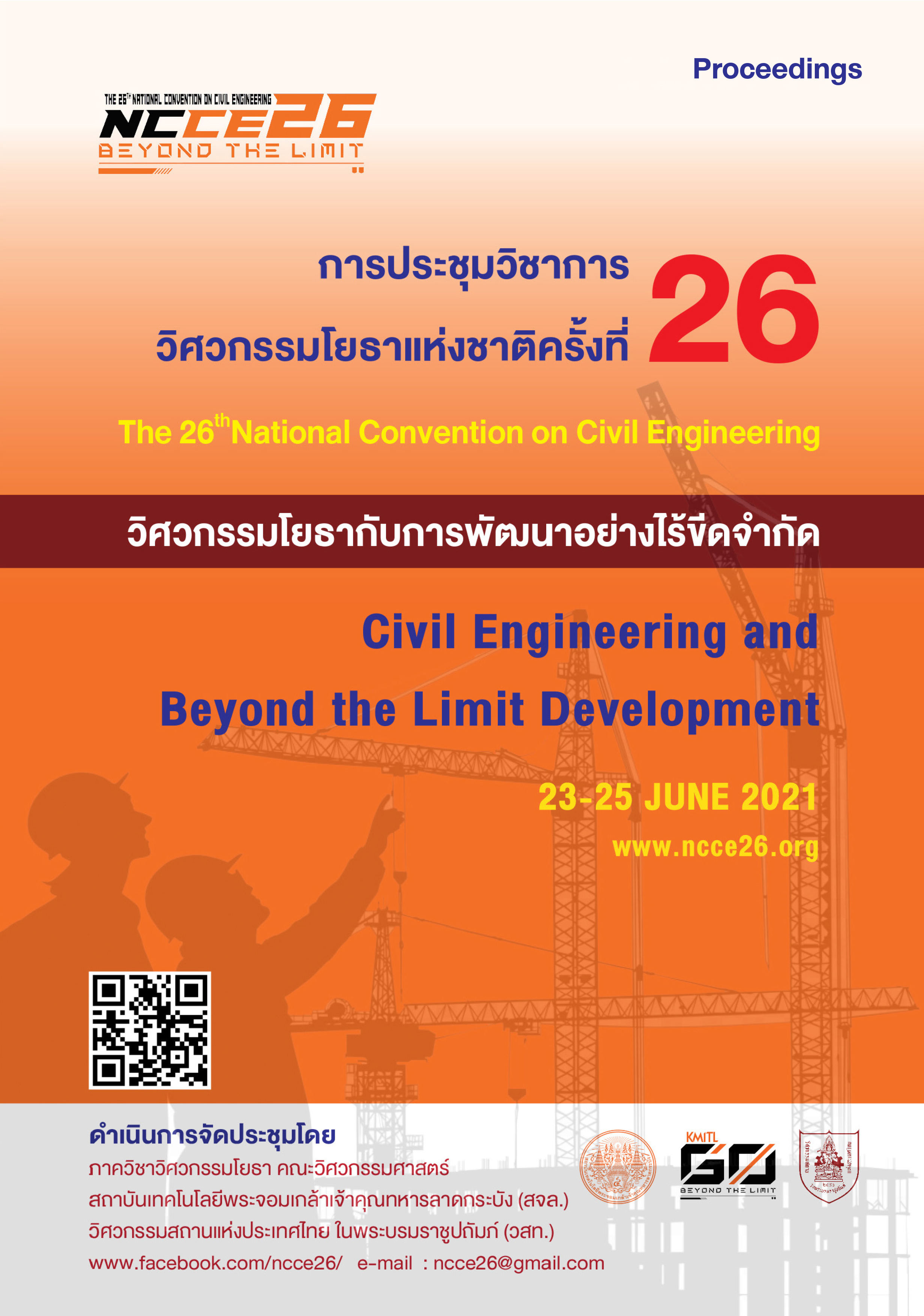การวิเคราะห์ดัชนีต่างๆของที่ดินที่สร้างขึ้นและที่ดินเปล่าในเมืองย่างกุ้งประเทศเมียนมาร์
คำสำคัญ:
Built-up area, EBBI, NDBI, UI, NDBAIบทคัดย่อ
Land distribution guidelines and recognition of national trends are important in preparing and evaluating changes in the land description data. This paper focuses primarily on the basic extraction from the satellite images of LANDSAT 5,7,8 and Sentinel 2A from USGS within thirty years of the urbanization from 1990 to 2020 of the built-up area for urban planning. GIS techniques for built-up area modeling are used in this research to calculate indices such as the Enhanced Built-up and Bareness Index (EBBI), the Normalized Difference Built-up Index (NDBI), the Urban Index (UI), and Normalized difference bareness index (NDBAI). Therefore, this research points out a variable approach to automatically mapping standard of enhanced built-up and bare land index (EBBI) changes with simple indices and according to index outputs. The number of outputs between the EBBI index and NDBI and UI rate was to use the entire Landsat imagery spectral range, generating less spectral variability between modifications in the built-up area and higher precision compared to the other indices. The percentage of Landsat's and Sentinel-2A's imaginary outputs was to use the entire spatial range of Landsat images that created less spectral complexity for higher accuracies between built-up area improvements compared to the other Landsat feature index, where the urban expansion area increased from 43.6 percent in 1990 to 92.5 percent in 2020. This research has an overall assessment accuracy of an average of 78% in Landsat and 93% in sentinel 2A with the value of the coefficient of linear regression 0.972 is rated as substantial. The modeling method was efficient, simple to implement quickly, which can be used to figure out the extraction of the built-up area.
Downloads
ดาวน์โหลด
เผยแพร่แล้ว
วิธีการอ้างอิง
ฉบับ
บท
การอนุญาต
บทความทั้งหมดที่ได้รับการคัดเลือกให้นำเสนอผลงานในการประชุมวิชาการวิศวกรรมโยธาแห่งชาติ ครั้งที่ 26 นี้ เป็นลิขสิทธิ์ของ วิศวกรรมสถานแห่งประเทศไทย ในพระบรมราชูปถัมภ์



